Jane Francesca Agnes. the revolutionary Irish poet and mother of Oscar and Willie Wilde was born on the 27th December 1821 in Wexford the youngest child of four to a prominent solicitor .Charles Elgee, and his wife Sarah (neé Kingsbury)
Charles sadly died when she was only three years old, leading to Jane being
largely self-educated. an4 incredibly is said to have mastered ten languages by the
age of 18,
Jane’s family were staunchly Unionist, coming as they did from English
stock. Jane herself was disinterested in national politics until 1845,
when she saw the funeral of Thomas Davis and heard that he was a poet.
Curious, she looked into his writings and discovered a new world. Davis
is often credited as being the writer who inspired the Irish nationalist
movement of the 19th century, despite his death at the age of 30 from
scarlet fever. A Protestant himself, he espoused an idea of Irishness
that ignored ethnic or religious identity in favour of an inclusive
nationalism. Jane was captivated by the ideas and ideals that Davis
promoted, and became a fervent convert.and political activist on behalf of the radical Young Ireland movement an all-Ireland struggle for independence and democratic reform.movement that was both political and cultural that produced the influential newspaper The Nation,
which championed “a nationality which may embrace Protestant, Catholic,
and Dissenter … the Irishman of a hundred generations, and the stranger
who is within our gates”.
She reinvented
herself under the pseudonym “Speranza,” the Italian word for hope.
Recalling his first
meeting with her, Charles Gavan Duffy, the editor of the Nation,
who had assumed the anonymous writer of such strident poetry was a man,
stated: “Miss Elgee was the daughter of an archdeacon of the
Establishment, and had probably heard nothing of Irish nationality among
her ordinary associates.”
When interviewed in later life, Speranza made a similar observation,
saying, “I was quite indifferent to the National movement, and if I
thought about it at all I probably had a bad opinion of its leaders; for
my family was Protestant and Conservative, and there was no social
intercourse between them and the Catholics and Nationalists.”
Speranza’s early contributions to the Nation coincided with
the reappearance of the potato blight in Ireland. Inept and
inappropriate relief measures introduced by the government in London
transformed the food shortages into a deadly famine. Speranza used her
penmanship to champion the Irish poor and to highlight their hunger and
oppression. These themes were evident in several her poems, including
the following ;
The Voice of the Poor - Lady Jane Wilde
Was sorrow ever like to our sorrow?
Oh, God above!
Will our night never change into a morrow
Of joy and love?
A deadly gloom goom is on us waking, sleeping,
Like the darkness at noontide,
That fell upon the pallid mother, weeping
By the Crucified.
Before us die our brothers of starvation:
Around are cries of famine and despair
Where is hope for us, or comfort, or salvation—
Where—oh! where?
If the angels ever hearken, downward bending,
They are weeping, we are sure,
At the litanies of human groans ascending
From the crushed hearts of the poor.
When the human rests in love upon the human,
All grief is light;
But who bends one kind glance to illumine
Our life‐long night?
The air around is ringing with their laughter—
God has only made the rich to smile;
But we—in our rags, and want, and woe—we follow after,
Weeping the while.
And the laughter seems but uttered to deride us.
When—oh! when
Will fall the frozen barriers that divide us
From other men?
Will ignorance for ever thus enslave us?
Will misery for ever lay us low?
All are eager with their insults, but to save us,
None, none, we know.
We never knew a childhood’s mirth and gladness,
Nor the proud heart of youth, free and brave;
Oh! a deathlike dream of wretchedness and sadness,
Is life’s weary journey to the grave.
Day by day we lower sink and lower,
Till the Godlike soul within,
Falls crushed, beneath the fearful demon power
Of poverty and sin.
So we toil on, on with fever burning
In heart and brain;
So we toil on, on through bitter scorning,
Want, woe, and pain:
We dare not raise our eyes to the blue heaven,
Or the toil must cease—
We dare not breathe the fresh air God has given
One hour in peace.
VII.
We must toil, though the light of life is burning,
Oh, how dim!
We must toil on our sick bed, feebly turning
Our eyes to Him,
Who alone can hear the pale lip faintly saying,
With scarce moved breath
While the paler hands, uplifted, aid the praying—
“Lord, grant us Death!”
Perhaps the most famous of her poems appeared in the Nation on 23 January 1847. Entitled “The
Stricken Land’, but subsequently renamed “The Famine Year,” in which she attacked the British political
establishment for creating the conditions that allowed famine to ravage
rural Ireland, and called the peasantry to revolt:
The Famine Year- Lady Jane Wilde,
Weary men, what reap ye? —Golden corn for the stranger.
What sow ye? —Human corpses that wait for the avenger.
Fainting forms, hunger‐stricken, what see you in the offing?
Stately ships to bear our food away, amid the stranger’s scoffing.
There’s a proud array of soldiers—what do they round your door?
They guard our masters’ granaries from the thin hands of the poor.
Pale mothers, wherefore weeping? —Would to God that we were dead
Our children swoon before us, and we cannot give them bread.
Little children, tears are strange upon your infant faces,
God meant you but to smile within your mother’s soft embraces.
Oh! we know not what is smiling, and we know not what is dying;
But we’re hungry, very hungry, and we cannot stop our crying.
And some of us grow cold and white—we know not what it means;
But, as they lie beside us, we tremble in our dreams.
There’s a gaunt crowd on the highway—are ye come to pray to man,
With hollow eyes that cannot weep, and for words your faces wan?
No; the blood is dead within our veins—we care not now for life;
Let us die hid in the ditches, far from children and from wife;
We cannot stay and listen to their raving, famished cries
Bread! Bread! Bread! and none to still their agonies.
We left our infants playing with their dead mother’s hand:
We left our maidens maddened by the fever’s scorching brand:
Better, maiden, thou were strangled in thy own dark‐twisted tresses—
Better, infant, thou wert smothered in thy mother’s first caresses.
We are fainting in our misery, but God will hear our groan;
Yet, if fellow‐men desert us, will He hearken from His Throne?
Accursed are we in our own land, yet toil we still and toil;
But the stranger reaps our harvest—the alien owns our soil.
O Christ! how have we sinned, that on our native plains
We perish houseless, naked, starved, with branded brow, like Cain’s?
Dying, dying wearily, with a torture sure and slow
Dying, as a dog would die, by the wayside as we go.
One by one they’re falling round us, their pale faces to the sky;
We’ve no strength left to dig them graves—there let them lie.
The wild bird, if he’s stricken, is mourned by the others,
But we—we die in Christian land—we die amid our brothers,
In the land which God has given, like a wild beast in his cave,
Without a tear, a prayer, a shroud, a coffin, or a grave.
Ha! but think ye the contortions on each livid face ye see,
Will not be read on judgment‐day by eyes of Deity?
We are wretches, famished, scorned, human tools to build your pride,
But God will yet take vengeance for the souls for whom Christ died.
Now is your hour of pleasure—bask ye in the world’s caress;
But our whitening bones against ye will rise as witnesses,
From the cabins and the ditches, in their charred, uncoffin’d masses,
For the Angel of the Trumpet will know them as he passes.
A ghastly, spectral army, before the great God we’ll stand,
And arraign ye as our murderers, the spoilers of our land.
In 1848, the Young Irelanders were planning to stage a rebellion. In the July 29th issue of The Nation,
Wilde wrote a famous headline "Alea Jacta Est" (The Die is Cast) which
led to the government authorities seizing the issue, closing the paper,
and arresting The Nation's editor, Charles Gavan Duffy. When
Duffy was brought to trial, Wilde stood up in court and announced that
she was the author of "Alea Jacta Est," not Duffy, as was being alleged.however her confession was ignored and the paper was closed.
In addition to supporting the revolutionary cause of Ireland, she was also a great supporter of women’s rights and believed that
they deserved a much better lot in life, from education to property
rights in marriage. She allowed suffragettes such as Millicent Fawcett
to speak at a meeting in her house on liberty for women.. She praised the passing of the Married Women's Property Act of 1883,
which prevented a woman from having to enter marriage 'as a bond slave,
disenfranchised of all rights over her fortune'.
In 1851, she
married eminent eye and ear surgeon William Wilde. They went on to have three children, William (1852), Oscar (1854) and Isola (1857).Jane adored her children and did not banish them to the nursery as was
then the custom. Rather, she read poetry and stories to them, and when
they were older they were present at her salons.
Towards the end of the 1860s, Jane began to hold soirées or conversazioni
at her house in Merrion Square which soon became the most celebrated
salon in Dublin. It attracted writers, journalists, lawyers, artists,
dramatists and students, the latter being friends of Willie and Oscar
who were studying at Trinity College, Dublin.Her literary salons were legendary not just for quality of the
conversation Ostensibly, "respectable people" were forbidden from her home because
they were usually so uninteresting.
Standing over six feet tall, with lustrous
black hair and “flashing brown eyes,” Oscar’s mother, Jane was
considered a great beauty in her youth. with features cast in an heroic mould” seemingly, “fit for the genius of poetry, or the spirit of revolution.”
From a very young age she, “had a sense of being destined for greatness, and imparted it.” In keeping with that persona, she had a penchant for reading and writing Irish Revolutionary poetry.
By her own admission she had a wild and rebellious nature: 'I should like to rage through life - this orthodox creeping is too tame for me - ah, this wild rebellious ambitious nature of mine. I wish I could satiate it with Empires, though St. Helena were the end."
Her husband was knighted in January 1864 and so, from then on, she
became known as Lady Jane Wilde. At a time when her fortunes should
have been on the rise both tragedy and social scandal followed during
the next few years. A successful court case was brought by a young
woman named Mary Travers who claimed that Sir William had sexually molested her while she was
anaesthetised. Jane leapt to his
rescue by sensationally denying the accusation, and writing that, among
other things, Travers ‘consorted with all the low newspaper boys in
Bray’.
Travers sued her, but was awarded an insulting farthing for ‘loss of
honour’but Sir William was landed with a whopping legal bill for £2,000.
Far more damaging, however, was his refusal to enter the witness box,
gossip surmised that there was some truth in Miss Traver’s accusation.
Shortly after this was followed by the death of the two
illegitimate daughters of Janes husband. Emily (aged 24 ) and Mary (aged 22 ) who had been
invited to a ball at Drumaconnor House. After most of the other guests
had gone, their host, Mr Reid invited Mary for a last waltz. As they
swirled around the room, Mary’s highly inflammable crinoline dress
touched the open fire and burst into flames. The remaining guests
screamed in terror. Emily rushed to her sister and attempted to put out
the fire. But her dress too, burst into flames. Reid tried to smother
the spreading fire, even rushing them outside and covering them in snow.
But little could be done. In agony Mary died on November 19, and Emily on November 21 from severe burns.
Sir William was completely broken by the event.But is also likely that his children with Lady Wilde, Willie, Oscar
and Isola Emily, knew nothing of their half-brother and sisters. The
family secret was kept secret. But Oscar did not escape remorse having felt it when his
beloved sister Isola Emily, whom he described as ‘dancing as a golden
sunbeam about the house’, died suddenly aged 10 years. dive tears before the tragic event.
Sir William himself died in 1876
and the façade of his financial security was laid bare when it was discovered that he had been on the verge of bankruptcy.
Following the death of her husband Jane moved to London to live with her
son Willie but, between them, their finances were severely stretched so she supplemented their income by writing for fashionable magazines and producing books on Irish folklore.
The Brothers - Lady Jane Wilde
Tis midnight, falls the lamp‐light dull and sickly,
On a pale and anxious crowd,
Through the court, and round the judges, thronging thickly,
With prayers none dare to speak aloud.
Two youths, two noble youths, stand prisoners at the bar
You can see them through the gloom
In pride of life and manhood’s beauty, there they are
Awaiting their death doom.
All eyes an earnest watch on them are keeping,
Some, sobbing, turn away,
And the strongest men can hardly see for weeping,
So noble and so loved were they.
Their hands are locked together, those young brothers,
As before the judge they stand
They feel not the deep grief that moves the others,
For they die for Fatherland.
They are pale, but it is not fear that whitens
On each proud, high brow,
For the triumph of the martyr’s glory brightens
Around them even now.
They sought to free their land from thrall of stranger;
Was it treason? Let them die;
But their blood will cry to Heaven—the Avenger
Yet will hearken from on high.
Before them, shrinking, cowering, scarcely human,
The base informer bends,
Who, Judas‐like, could sell the blood of true men,
While he clasped their hands as friends.
Aye, could fondle the young children of his victim,
Break bread with his young wife,
At the moment that for gold his perjured dictum
Sold the husband and the father’s life.
There is silence in the midnight—eyes are keeping
Troubled watch till forth the jury come;
There is silence in the midnight—eyes are weeping—
“Guilty!”—is the fatal uttered doom.
For a moment o’er the brothers’ noble faces
Came a shadow sad to see;
Then silently they rose up in their places,
And embraced each other fervently.
Oh! the rudest heart might tremble at such sorrow,
The rudest cheek might blanch at such a scene:
Twice the judge essayed to speak the word—to‐morrow
Twice faltered, as a woman he had been.
To‐morrow!—Fain the elder would have spoken,
Prayed for respite, tho’ it is not death he fears;
But thoughts of home and wife his heart hath broken,
And his words are stopped by tears.
But the youngest—oh, he spake out bold and clearly:
“I have no ties of children or of wife;
Let me die—but spare the brother who more dearly
Is loved by me than life.”
Pale martyrs, ye may cease, your days are numbered;
Next noon your sun of life goes down;
One day between the sentence and the scaffold
One day between the torture and the crown!
A hymn of joy is rising from creation;
Bright the azure of the glorious summer sky;
But human hearts weep sore in lamentation,
For the Brothers are led forth to die.
Aye, guard them with your cannon and your lances
So of old came martyrs to the stake;
Aye, guard them—see the people’s flashing glances,
For those noble two are dying for their sake.
Yet none spring forth their bonds to sever
Ah! methinks, had I been there,
I’d have dared a thousand deaths ere ever
The sword should touch their hair.
It falls!—there is a shriek of lamentation
From the weeping crowd around;
They’re stilled—the noblest hearts within the nation
The noblest heads lie bleeding on the ground.
Years have passed since that fatal scene of dying,
Yet, lifelike to this day,
In their coffins still those severed heads are lying,
Kept by angels from decay.
Oh! they preach to us, those still and pallid features
Those pale lips yet implore us, from their graves,
To strive for our birthright as God’s creatures,
Or die, if we can but live as slaves.
As Oscar's writing prospered, he helped Jane financially and also
secured writing commissions for her when he could. When Oscar married Constance Lloyd (Wilde)
in 1884, she and Jane developed a close relationship.
For some years she maintained her social role,and her Saturday afternoon ‘At Homes’ in London were attended by a wide
variety of Irish and other celebrities like Oliver Wendell Holmes and the suffragist Millicent Fawcett,
as well as her sons and their friends. Her extravagant manner, her
old-fashioned dress and her predilection for candlelight and closed
drapes drew ridicule from some, but others like Yeats and Shaw
remembered her kindness and solicitude towards the numerous Irish
expatriates and aspiring writers who turned up at her house.
It is uncertain
whether Jane ever understood Oscar's sexuality, but in 1895, when he was
charged with homosexual offenses, she urged him not to flee the
country, as many of his friends were advising, but to stay and fight. Oscar's conviction was a terrible
blow, but even from prison he made sure that Jane had enough money from a
fund set up by his friends
In these later years, Jane suffered ill health and, early in 1896, she caught bronchitis.
Fearing that she may not recover she made a request to see her son Oscar
who was serving a term of imprisonment. after his conviction for gross indecency. Permission was denied and she
passed away on the 3rd of February at the age of 74.
Oscar’s wife, Constance, travelled across Europe to break the news to
the devoted son, so that he wouldn't take it too hard. but who reported that he already knew his mother was dead:
her ghost had come to him in a vision in his cell.
Marking her death, on 3 February 1896, a sympathetic obituary in The Athenaeum
declared: ‘Under the mark of brilliant display and bohemian
recklessness lay a deep and loyal soul and a kindly and sympathetic
nature’. The Freeman’s Journal
lauded her as ‘almost the last of that brilliant circle of poets and
writers who, fifty years ago, gave to the “Young Ireland” movement a
world-wide celebrity/'
Both Jane and Willie were penniless when she died, so her funeral was
paid for out of Oscar’s estate.
He could not, of course, attend. Nor
could he afford a tombstone, so she was buried in an unmarked grave in Kensal Green Cemetery.
Fortunately, this was rectified by the Oscar Wilde Society in recent times, who placed a Celtic cross memorial on her resting place. It remembers her as a “writer, translator, poet, nationalist, and early advocate for equality of women”






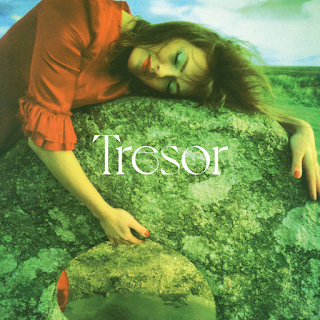


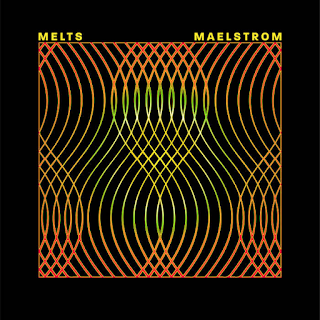
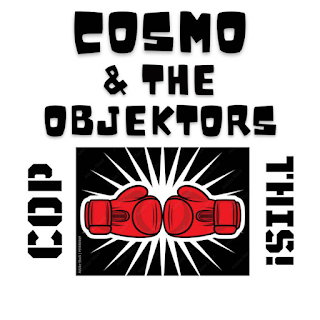
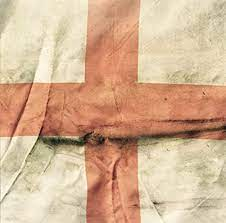












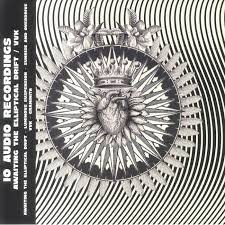






.jpg)
